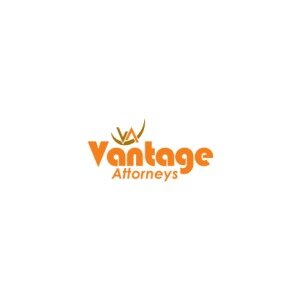Best Administrative Lawyers in Nigeria
Share your needs with us, get contacted by law firms.
Free. Takes 2 min.
Or refine your search by selecting a city:
List of the best lawyers in Nigeria
Legal guides written by Adeola Oyinlade & Co:
- Procedure and Requirements for Work Permit and Visas in Nigeria
- The Step-By-Step Procedure of How to Apply for Microfinance Bank License Online in Nigeria
- How to Ensure the Smooth Recognition and Enforcement of Foreign Judgments in Nigeria
About Administrative Law in Nigeria
Administrative law in Nigeria is a branch of public law that governs the activities and operations of government agencies. It involves the rules and regulations that are applied to government bodies and ensures that they act within their legal authority. The primary objective is to ensure that public administration is conducted legally, efficiently, and fairly. By establishing a framework for regulating agencies' powers, administrative law protects citizens by providing mechanisms for remedy and checks and balances on government actions.
Why You May Need a Lawyer
There are numerous situations where an individual's interaction with various governmental agencies might necessitate the expertise of a lawyer specializing in administrative law:
- Challenging the decisions of local government bodies or state agencies.
- Filing or appealing benefits claims, such as pension or social welfare disputes.
- Applying for, renewing, or revoking licenses and permits.
- Dispute resolution related to public procurement processes.
- Administrative proceedings regarding environmental regulations.
- Ensuring compliance with local and federal ordinances by businesses.
- Addressing grievances related to employment within public sectors.
- Handling accountability issues within governmental agencies.
- Advising non-profits on regulatory aspects crucial to their operations.
- Navigating the complex field of educational law with public institutions.
Local Laws Overview
Administrative law in Nigeria is guided by several key legal statutes and principles that govern how administrative bodies operate. Crucial statutes include:
- The Constitution of the Federal Republic of Nigeria provides the foundation for public administration and includes a Bill of Rights ensuring fundamental freedoms and rights.
- The Administrative Procedure Act, which outlines standardized procedures for federal administrative agencies.
- Public Procurement Act, regulating the procedures for government procurement processes.
- Freedom of Information Act, allowing citizens to request access to government-held information.
Furthermore, Nigerian administrative law emphasizes natural justice principles, ensuring fairness, openness, and impartiality in governmental decisions.
Frequently Asked Questions
1. What is administrative law?
Administrative law is a branch of law that oversees the activities of government agencies, ensuring they act within their legal boundaries and uphold principles of fairness and justice.
2. Can I represent myself in administrative law cases?
While it's possible to represent yourself, having a lawyer can increase your chances of success due to their understanding of intricate legal procedures and experience in negotiation and advocacy.
3. How can I challenge a decision made by a government agency?
Decisions can typically be challenged through appeals cprocess stipulated in law, including tribunal reviews or seeking judicial review in court.
4. What is the role of administrative tribunals?
Administrative tribunals serve as specialized courts or panels that resolve disputes involving administrative law matters, offering a more streamlined and technical understanding of specific issues.
5. Are there timelines to follow in administrative proceedings?
Yes, there are usually strict timelines for filing appeals or requesting reviews of administrative decisions, which vary depending on the type of case or agency involved.
6. What resources are available for small businesses facing administrative challenges?
Small businesses can access legal assistance through various bodies such as chambers of commerce or legal aid societies providing professional guidance on compliance and disputes.
7. Can administrative laws vary between Nigerian states?
While federal laws provide a broad framework, each Nigerian state may enact laws that address unique administrative issues relevant to their jurisdiction.
8. What should I do if I suspect an administrative agency is acting beyond its authority?
You can contact a lawyer who specializes in administrative law to assess the situation and determine possible legal remedies or appeal processes.
9. Is it possible to obtain compensation through administrative proceedings?
Depending on the circumstances, if an administrative decision has resulted in loss or damage, it might be possible to pursue compensation, usually through administrative tribunals or court processes.
10. What are grounds for judicial review in Nigeria?
Judicial review can be requested when there is illegality, irrationality, procedural impropriety, or unreasonableness in the decision or actions of a public authority.
Additional Resources
If you require further information or assistance, consider exploring the following resources:
- The Nigerian Bar Association-provides referrals to pro bono legal services and resources on legal rights.
- Nigerian Institute of Advanced Legal Studies-offers publications on various legal topics including administrative law.
- Ministry of Justice-offers insights into regulatory frameworks and legal assistance from government perspectives.
- Public Complaints Commission-handles grievances related to administrative bodies and public institutions.
Next Steps
If you need legal assistance in administrative matters, consider taking the following steps:
- Identify the issue and gather all relevant documentation, including any communications with concerned government agencies.
- Seek initial consultation with a lawyer who specializes in administrative law to evaluate your case and understand your options.
- Prepare a list of questions and concerns to discuss during legal consultations to make the most of your time.
- If proceeding with legal action, ensure clear communication with your lawyer about desired outcomes and any cost considerations.
- Regularly follow up on the progress and developments of your case to stay informed and make timely decisions.
Taking proactive measures can significantly assist in effectively navigating administrative legal issues in Nigeria.
Lawzana helps you find the best lawyers and law firms in Nigeria through a curated and pre-screened list of qualified legal professionals. Our platform offers rankings and detailed profiles of attorneys and law firms, allowing you to compare based on practice areas, including Administrative, experience, and client feedback.
Each profile includes a description of the firm's areas of practice, client reviews, team members and partners, year of establishment, spoken languages, office locations, contact information, social media presence, and any published articles or resources. Most firms on our platform speak English and are experienced in both local and international legal matters.
Get a quote from top-rated law firms in Nigeria — quickly, securely, and without unnecessary hassle.
Disclaimer:
The information provided on this page is for general informational purposes only and does not constitute legal advice. While we strive to ensure the accuracy and relevance of the content, legal information may change over time, and interpretations of the law can vary. You should always consult with a qualified legal professional for advice specific to your situation.
We disclaim all liability for actions taken or not taken based on the content of this page. If you believe any information is incorrect or outdated, please contact us, and we will review and update it where appropriate.
Browse administrative law firms by city in Nigeria
Refine your search by selecting a city.
















